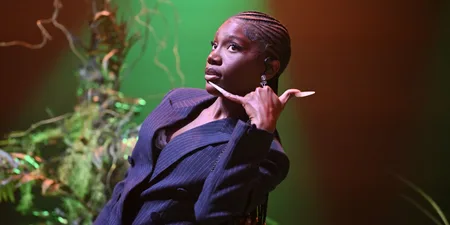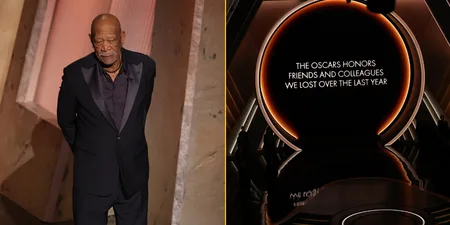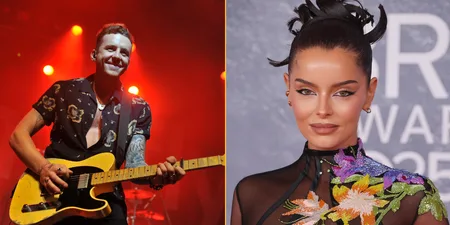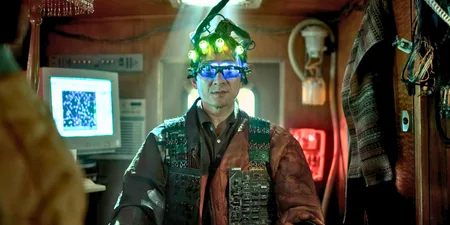Black excellence.
There’s been plenty of hype surrounding Marvel’s Black Panther movie as of late, and rightly so.
It’s refreshing to see a universal brand such as Marvel bucking the Hollywood trend of choosing to cast white actors to play the roles of minorities – yes Ridley Scott, I’m looking at you for that piss poor Exodus: Gods and Kings. But not only that, the movie is also very good and for that alone deserves all the praise it’s receiving.
But let’s be sure to reserve some of that praise for the movie’s accompanying soundtrack.
The days when soundtracks were an everyday fixture on the charts – think Dirty Dancing, Save the Last Dance, Grease, Dangerous Minds, The Commitments – are long gone, and I’m not even all that sure why. What I do know however is that this never should have happened.
Prior to Spotify playlists soundtracks were the only place you’d find the most unlikely pairings, whether on the same track together or just sitting on the same tracklisting. Remember the Judgement Night soundtrack? Who’d have thought that Faith No More would have worked on a track with Boo-Yaa Tribe? Or how about Pearl Jam and Cypress Hill? Or my personal favourite, Biohazard and Onyx?
But it wasn’t just the collaborations that set soundtracks apart, it was the new music created with the sole purpose to follow a similar narrative to the one embedded deep within the movie, as penned by the writer of the screenplay. Soundtracks often felt cohesive and built a story that the listener could relate to regardless of if they’d seen the movie or not.
Sparking what could be a resurgence in quality soundtracks, Black Panther: The Album is everything we wanted it to be. It follows a theme, it features the best of the best as far as contributors go, the production is A1, and Kendrick Lamar far exceeds his duties as the album’s Executive Producer.
Celebrating black excellence, black love and individuality, the album is the perfect vehicle to hush discriminatory ignorance. Whether it’s Trump supporters, Brexitiers who voted leave simply because of immigration, racist cops with itchy trigger fingers, or just plain and simple racist individuals, let me ask you this: Where would our world be without black art?
Think about that for a moment, really let it sink in. There’d be no soul, no groove, no gut-punching rhythms waiting to take over your whole being. I don’t even need to think twice to know that’s not a world I’d like to live in. And Kendrick Lamar has given us yet another reason to love Africa: the people, the descendants, the music and the culture.
Black Panther: The Album is as dynamic and multi-layered as the movie it accompanies.
Playing like an extension of Kendrick Lamar’s To Pimp A Butterfly, there’s something new to pick up on with each spin. Kendrick himself plays two roles that sit at opposite ends of the class spectrum but are essentially the same at the root (this will make more sense once you’ve seen the movie). So whether he’s T’Challa or Killmonger, Kendrick represents both the struggle and the success of being a king in ones own mind, even if your bloodline does not immediately derive from royalty – we’re all kings if we want to believe it.
So with that said, there’s a revolutionary spirit tattooed deep within the skin of this album. From the opening “Black Panther” track to the stunningly beautiful “I Am”, provided courtesy of our very own Jorja Smith (this year’s recipient of the BRITs Critics Choice Award), there’s so much self love and self appraisal, it’s expression of the highest order.
Even the more commercially tinted moments on the album express strength and depth. Whether it’s Khalid & Swae Lee’s “The Ways”, a gorgeous track which leaves you floating on a cloud of euphoric bliss, or The Weeknd and Kendrick’s “Pray For Me”, a dark war cry about standing up and going it alone – it’s also a song that wouldn’t have sounded out of place on The Weeknd’s Starboy tracklisting – there’s a lot of reading between the lines to be done throughout.
Then there’s “All the Stars”. A shining example of how a pop song can be more than just simplistic lyrics paired with a few bells and whistles, it’s warm with a pulse that beats in sync with your own. When I first heard it I was taken aback by how it made me feel, it’s actually quite breathtaking. It felt like the official arrival of SZA with the entire world watching on. It also felt like Rihanna’s grip as the princess of pop loosened slightly.
Embracing the Marvel comic’s African roots with earthy percussion throughout, you’ll hear the drums of the motherland openly used on songs like “Redemption” by newcomer Zacari and self-proclaimed gqom star Babes Wodumo, and then you’ll hear it creep its way into tracks like “Bloody Waters” by Ab-Soul, Anderson .Paak and James Blake, as well as the electronically dominant “Opps” by Vince Staples and Yugen Blakrok.
And as far as the album’s production goes, wow, what can I say? It’s an integral part of proceedings, with TDE’s in-house producer Sounwave taking on most of the responsibilities. Musically carving out what best describes Wakanda, it’s a very percussion and synth driven project that also features input from Mike WiLL Made-It (“King’s Dead”), DJ Dahi (“Paramedic!”), Illmind (“X”) and BADBADNOTGOOD (“The Ways”).
Black Panther: The Album further proves how much of a tour de force TDE really are. Steered by Top Dawg and shaped by Kendrick, this is what a soundtrack is supposed to sound like. It’s supposed to be heavily invested in and not just be a bunch of random records thrown together for the sake of selling units. It’s about quality over quantity and they delivered in a big way.
Now, can we have more soundtracks like this please?







































